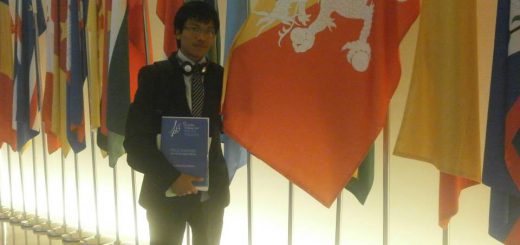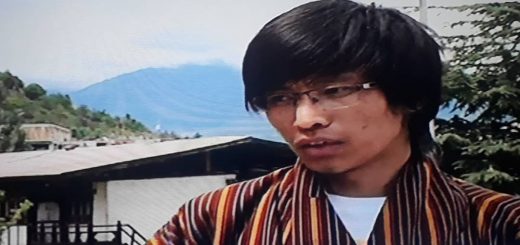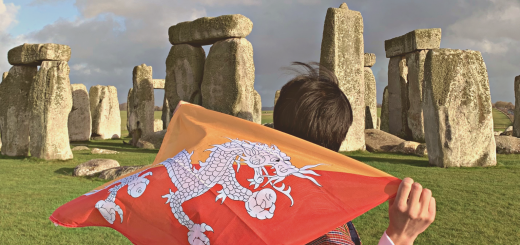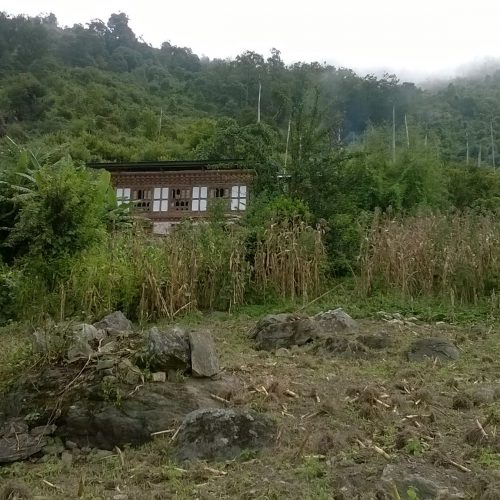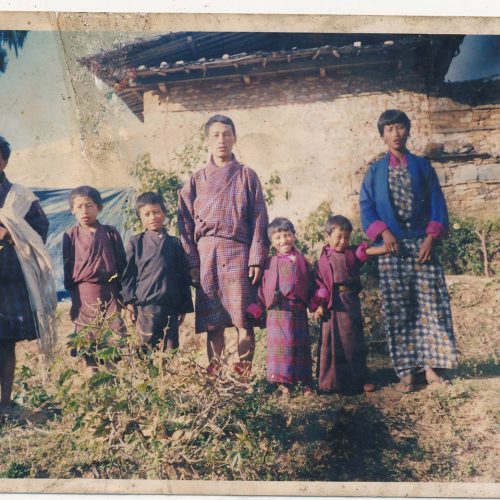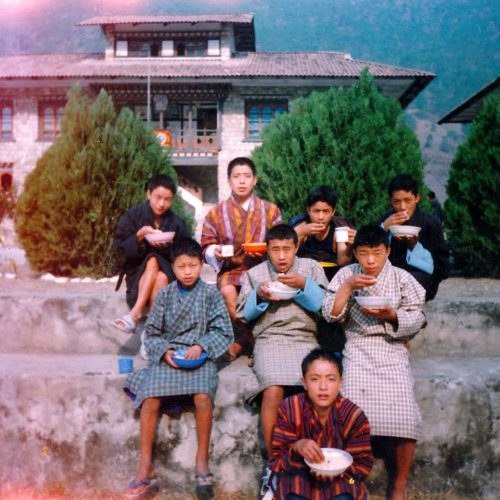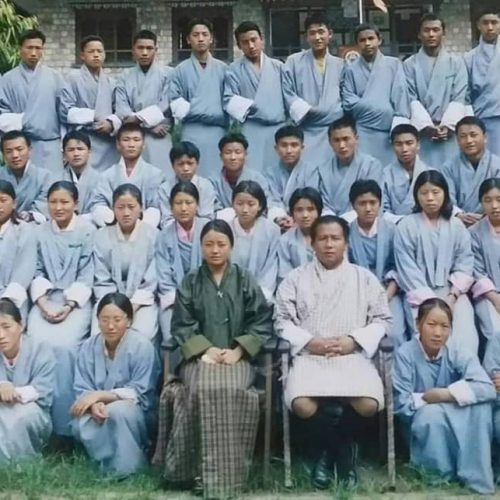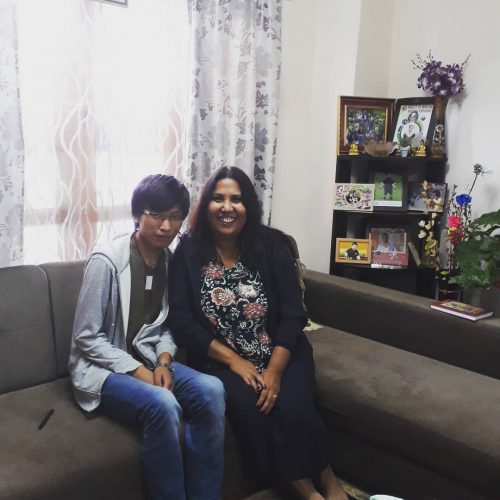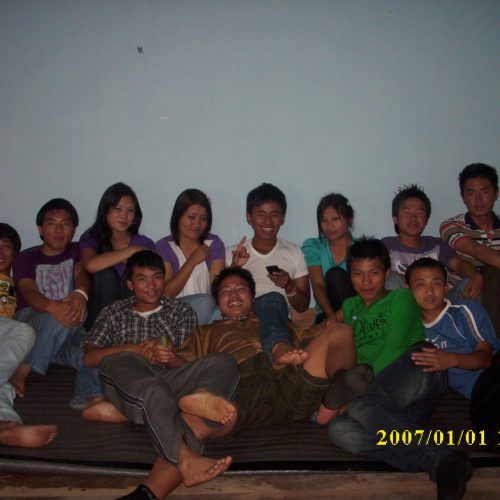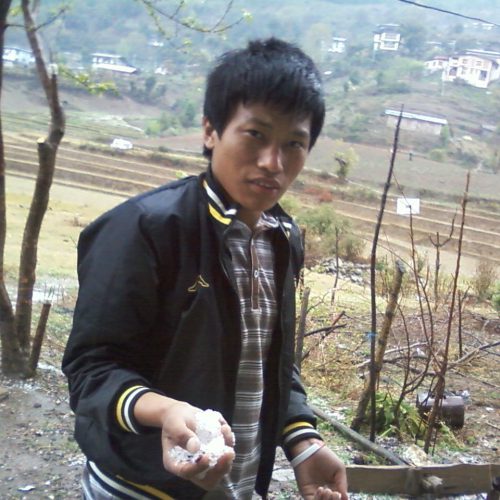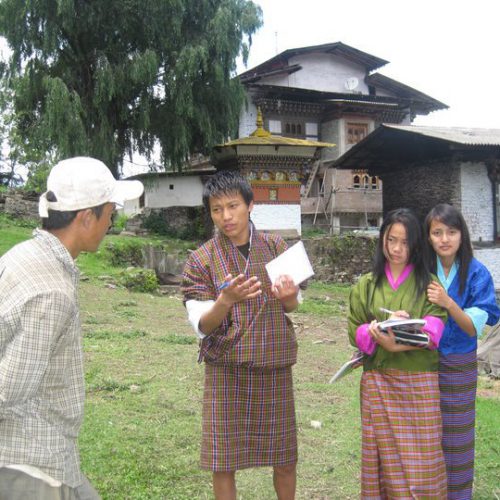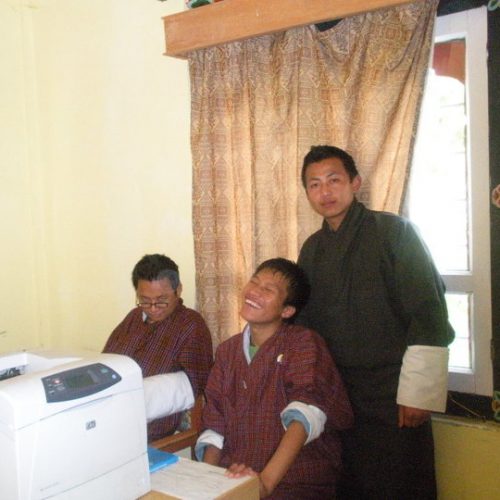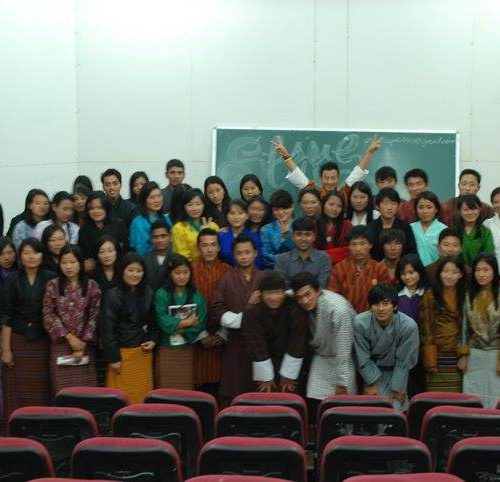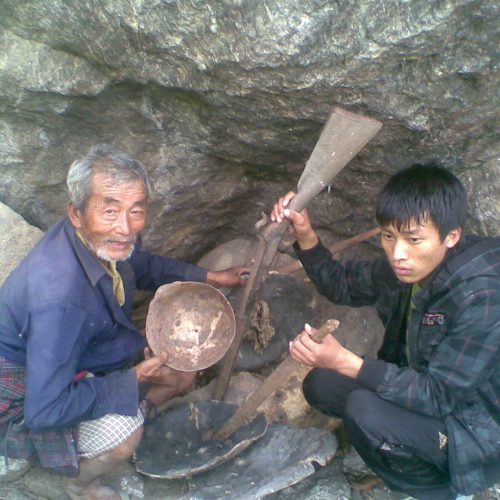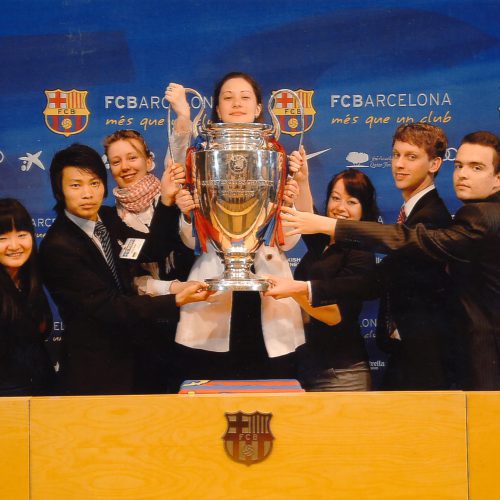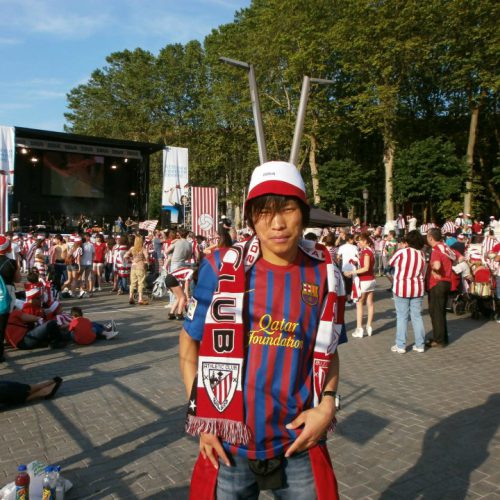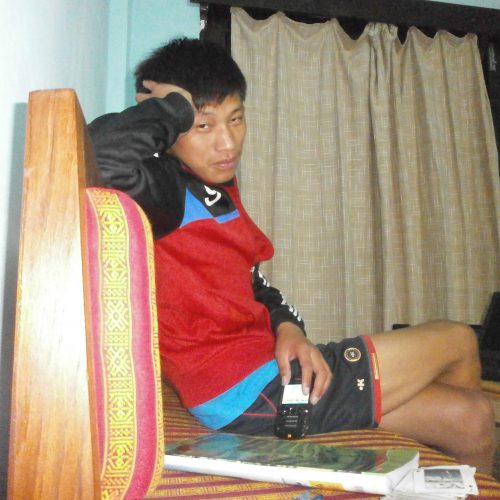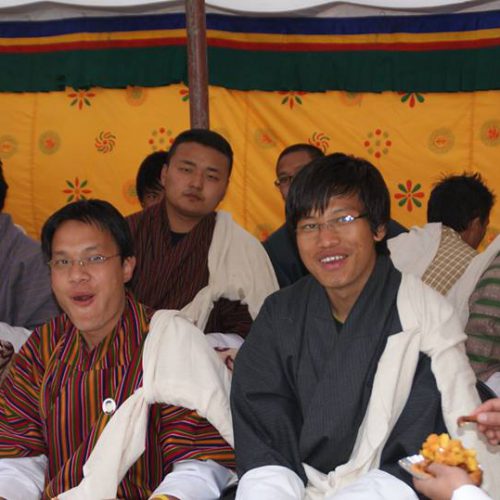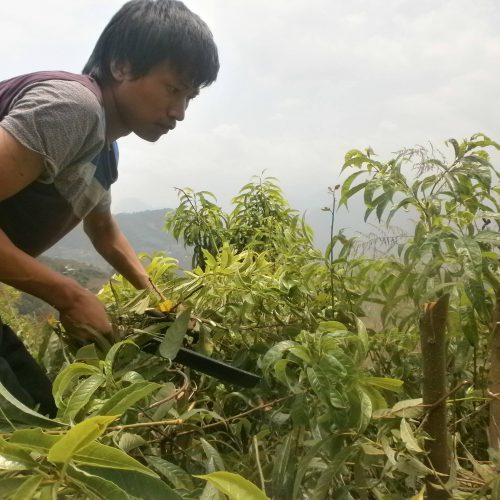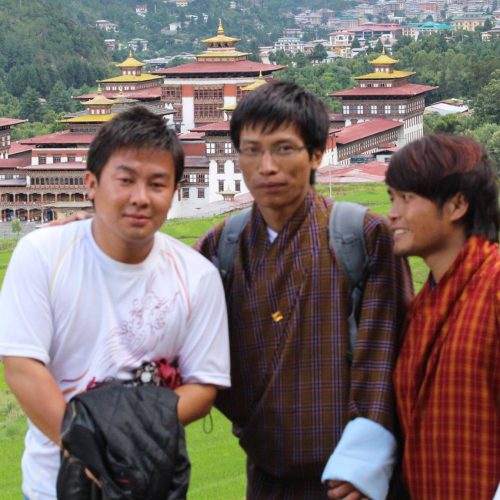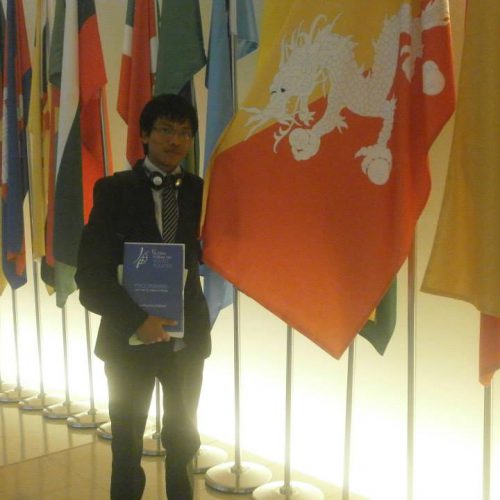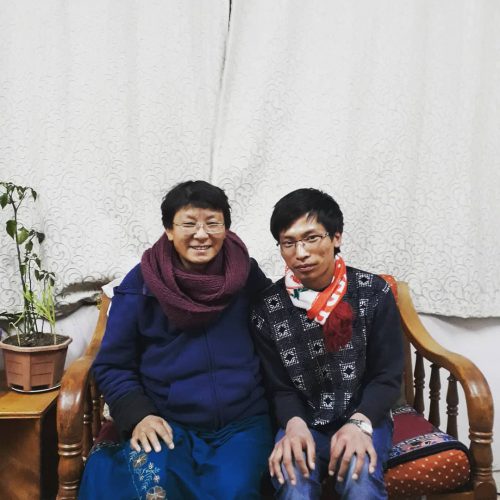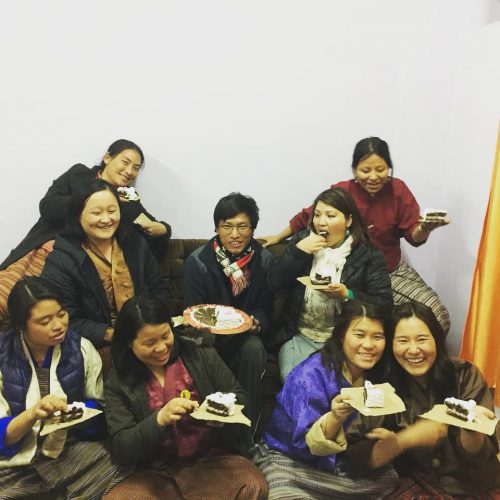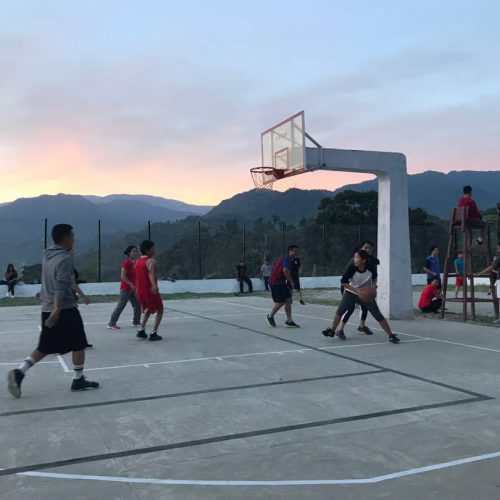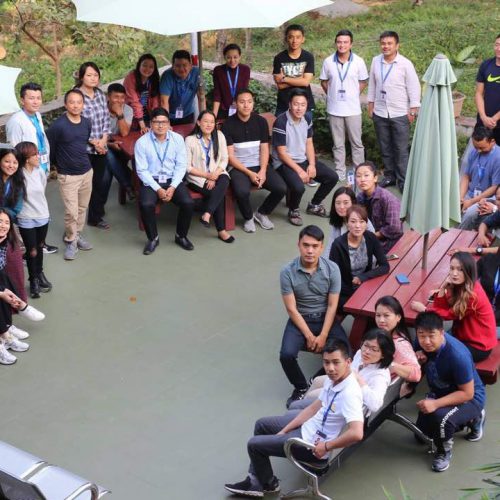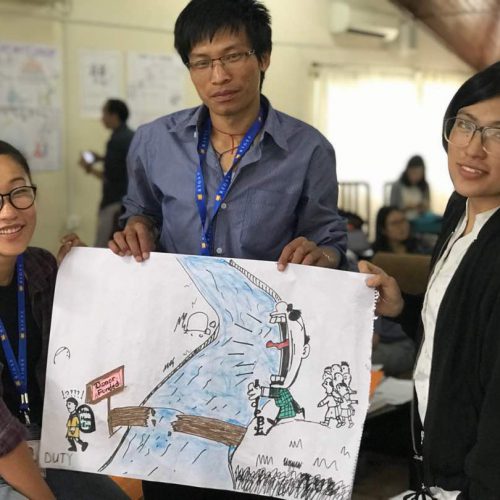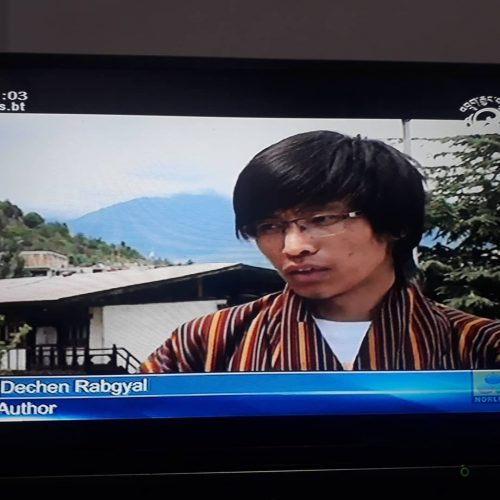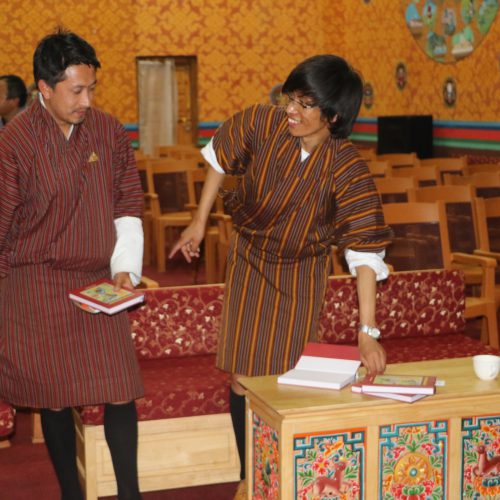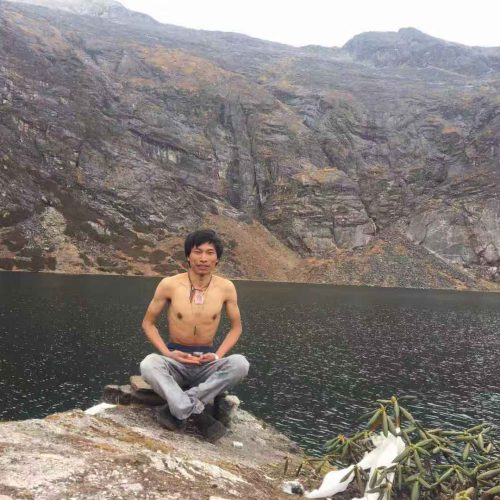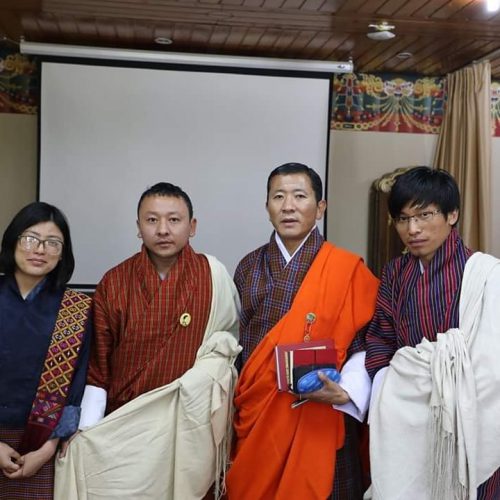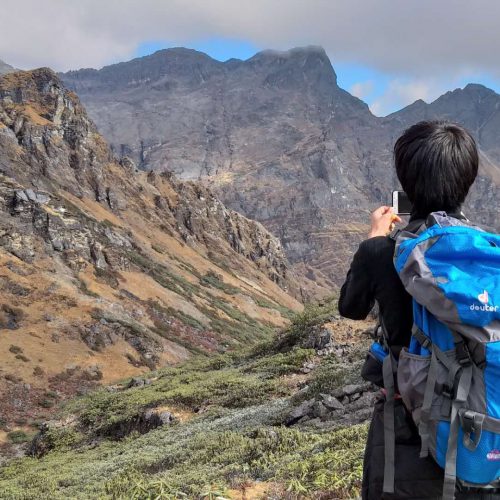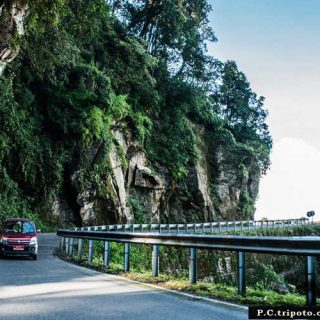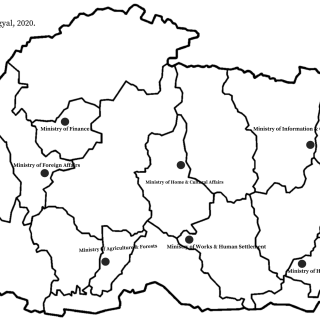To my Teachers- Tribute in Text
The longer the distance I travel, more connected I feel with my teachers. If there is one thing that continues to impact in my life, they are my teachers. As we [in Bhutan] observe Teachers Day on 02 May [tomorrow], in the ensuing paragraphs, I reproduce some of the conversations I have had with my teachers. Through these conversations, I narrate a story about how my interactions [outside formal classroom setting] with teachers helped shape my approach to life and living. To make it more current, it is ordered in a reverse chronology. The approach also helps in constructing a narrative model- how one episode builds to another.
In June 2020, I received an email from Madam Dolma: “What [a] wonderful news! And what a lovely lovely email to read first thing in the morning!” It was the response to my email about me getting selected for Chevening Awards. She wasn’t my regular teacher but we have known since 2009 at Sherubtse College where we worked closely in a student body, Sherubtse Thinkers and Rationalist Society [STARS]. Language classes she would deliver during weekend helped me work on my otherwise substandard language. Indeed, she was one of the two referees for my admission application at the London School of Economics and Political Science (LSE). Her editorial work for my debut book helped me organise my thinking and argumentation.
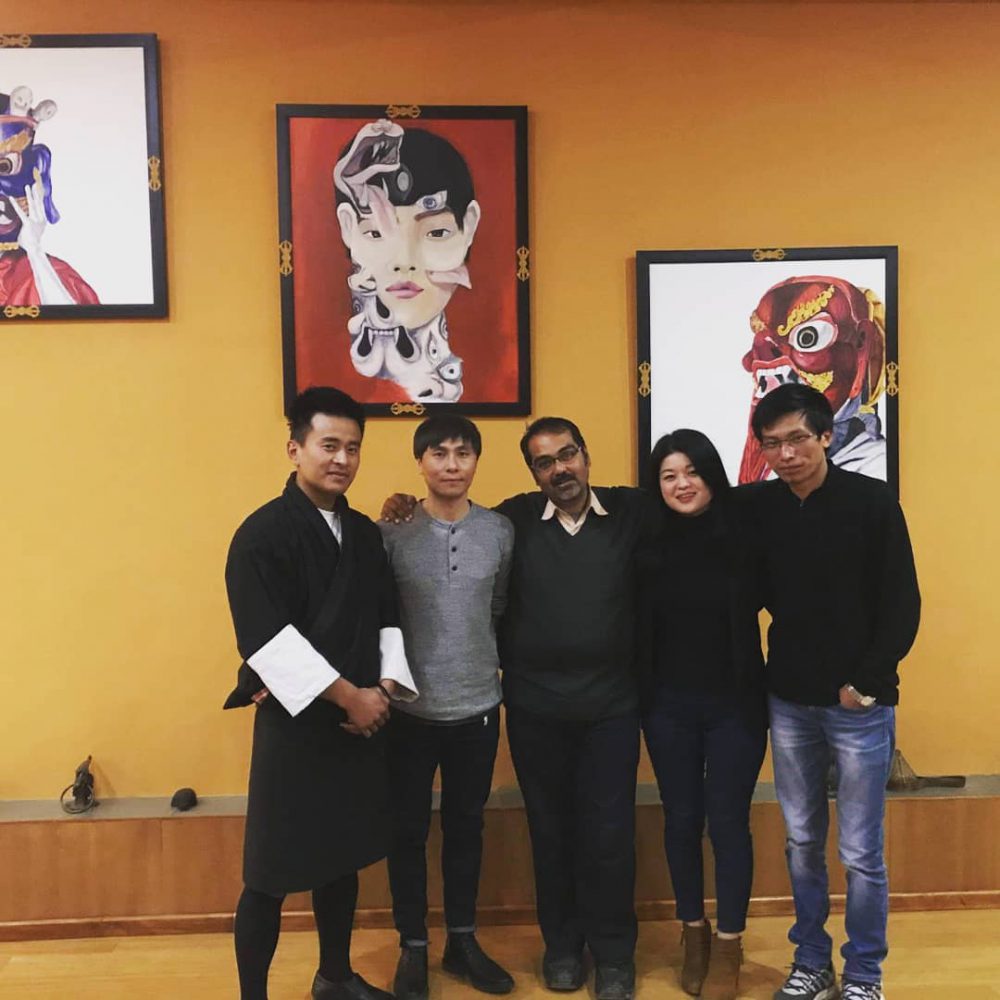 In the process of writing the book, Mr. Sarbajeet helped me access to books [Education in Bhutan: Culture, Schooling and Gross National Happiness, and Buddhism and Political Theory
In the process of writing the book, Mr. Sarbajeet helped me access to books [Education in Bhutan: Culture, Schooling and Gross National Happiness, and Buddhism and Political Theory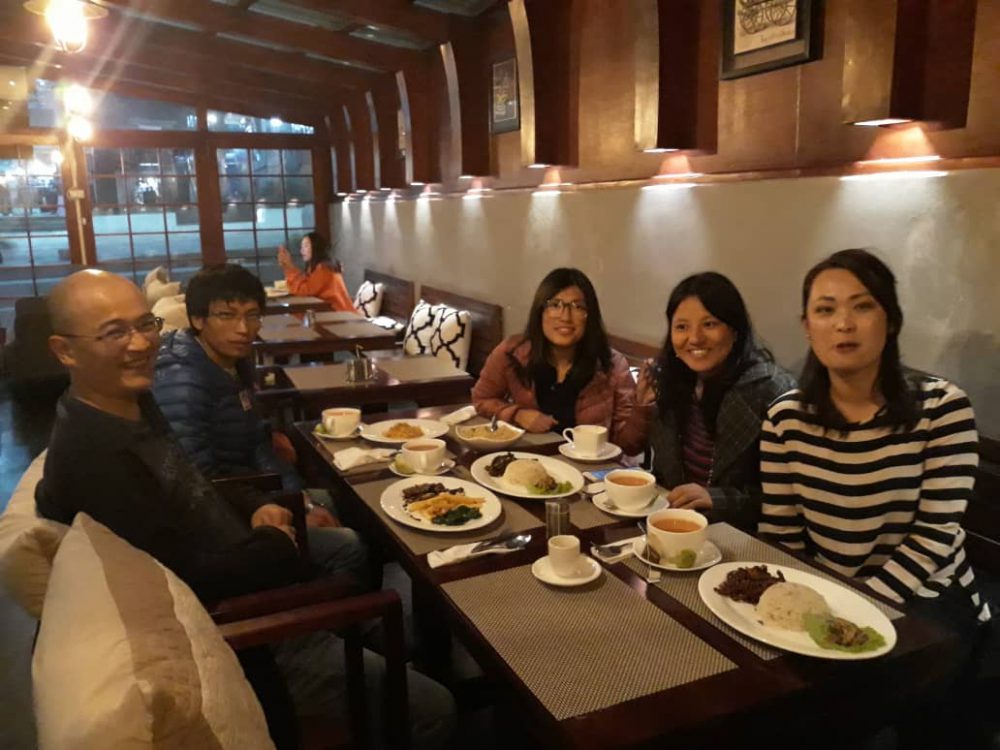 ] from his College’s library. He would borrow books in his name to lend it to me. Weekend conversation at his residence on geopolitics deepened my interest in International Relations [IR]. Indeed, it is another foreigner in Dr. Adrian that got me interested in IR as he commented, ‘Why not International Relations?’ during one of our get together evening in early 2018 as we discussed on my postgraduate studies. Dr. Adrian, who facilitated sessions on leadership at the Royal Institute for Governance and Strategic Studies (RIGSS) have deep impression in me. During RIGSS’s Friday Forum session on Search Inside Yourself (SIY) on 17 November 2017, he asked the resource person how can SIY be of benefit to Bhutan. Just a while ago, I happen to ask my own share of question. But his question struck my chord. I would go on to have some conversations on my aspirations and related topics with him including one mentoring session at his residence.
] from his College’s library. He would borrow books in his name to lend it to me. Weekend conversation at his residence on geopolitics deepened my interest in International Relations [IR]. Indeed, it is another foreigner in Dr. Adrian that got me interested in IR as he commented, ‘Why not International Relations?’ during one of our get together evening in early 2018 as we discussed on my postgraduate studies. Dr. Adrian, who facilitated sessions on leadership at the Royal Institute for Governance and Strategic Studies (RIGSS) have deep impression in me. During RIGSS’s Friday Forum session on Search Inside Yourself (SIY) on 17 November 2017, he asked the resource person how can SIY be of benefit to Bhutan. Just a while ago, I happen to ask my own share of question. But his question struck my chord. I would go on to have some conversations on my aspirations and related topics with him including one mentoring session at his residence.
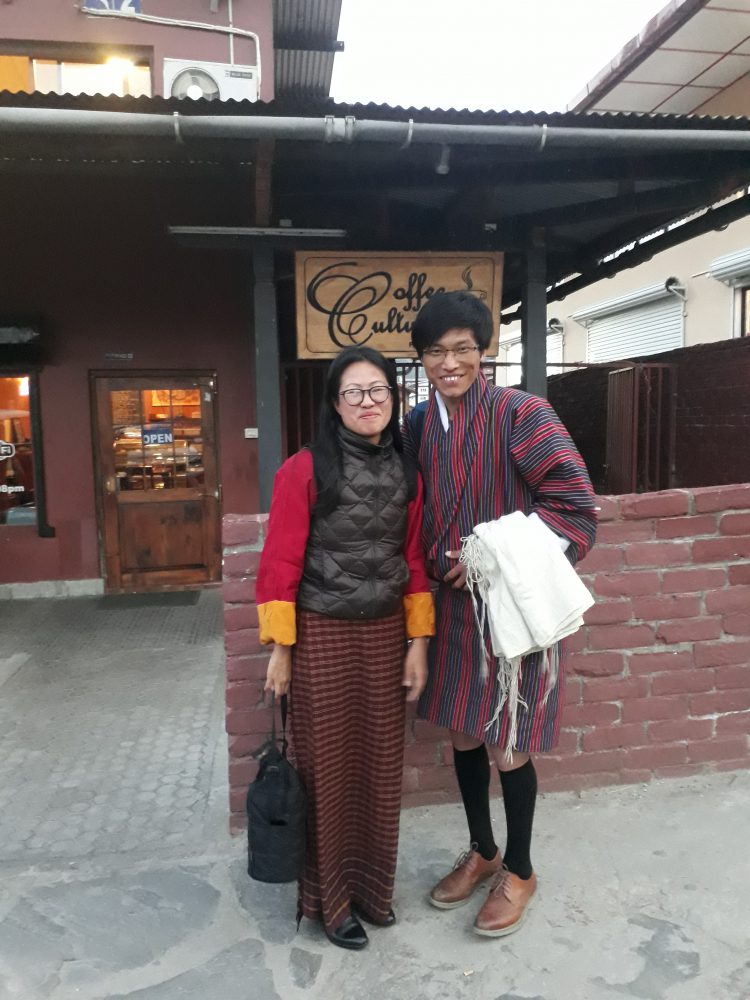 Sherubtse College gave life to my notes by agreeing to publish my book. And Madam Kencho was instrumental in connecting me back with my alma mater. Her role as mentor in STARS and Sherubtse Student Leadership Programme (SSLP) introduced me to the fundamentals of leadership. In an attempt to leave a ‘last leg legacy’, I tried organising a youth conference. But everything crumbled when it was just about to happen. It was hardest thing to take given that one reason for my apparent premature departure from civil service was to do something relevant to youth when I can relate with them the most. It turned out to be a ‘last leg lesson’. “I am sorry to hear that your conference planning is not going very well”, she wrote to me in September 2019. Such messages of solidarity give you comfort and calmness in the wake of failure and hopelessness.
Sherubtse College gave life to my notes by agreeing to publish my book. And Madam Kencho was instrumental in connecting me back with my alma mater. Her role as mentor in STARS and Sherubtse Student Leadership Programme (SSLP) introduced me to the fundamentals of leadership. In an attempt to leave a ‘last leg legacy’, I tried organising a youth conference. But everything crumbled when it was just about to happen. It was hardest thing to take given that one reason for my apparent premature departure from civil service was to do something relevant to youth when I can relate with them the most. It turned out to be a ‘last leg lesson’. “I am sorry to hear that your conference planning is not going very well”, she wrote to me in September 2019. Such messages of solidarity give you comfort and calmness in the wake of failure and hopelessness.
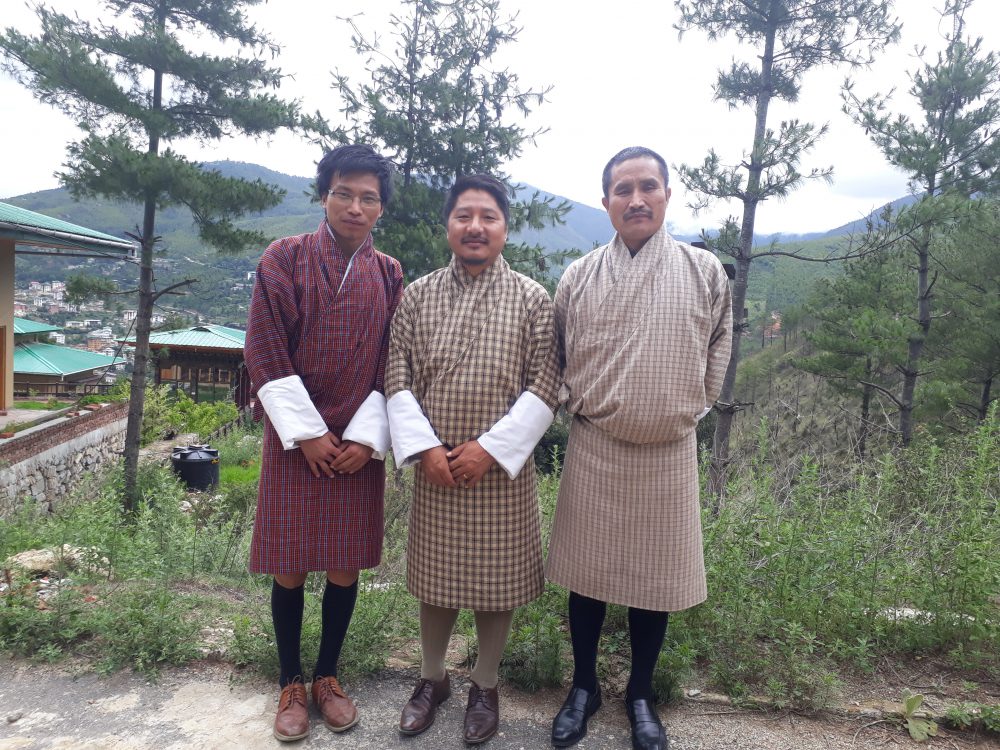 At Sherubtse, I become a little more analytical and inquisitive. On 20 April 2013, as we were travelling by the roadside of Wangdue Choling Palace, Bumthang in his car, as a part of our class’s study tour, Mr Dorji S recounted the history of the Palace and the role of Trongsa Ponlop Jigme Namgyel and First Druk Gyalpo Ugyen Wangchuck. In his narration, I found the power of reflective writing. And I achieved good grade in my field report.
At Sherubtse, I become a little more analytical and inquisitive. On 20 April 2013, as we were travelling by the roadside of Wangdue Choling Palace, Bumthang in his car, as a part of our class’s study tour, Mr Dorji S recounted the history of the Palace and the role of Trongsa Ponlop Jigme Namgyel and First Druk Gyalpo Ugyen Wangchuck. In his narration, I found the power of reflective writing. And I achieved good grade in my field report.
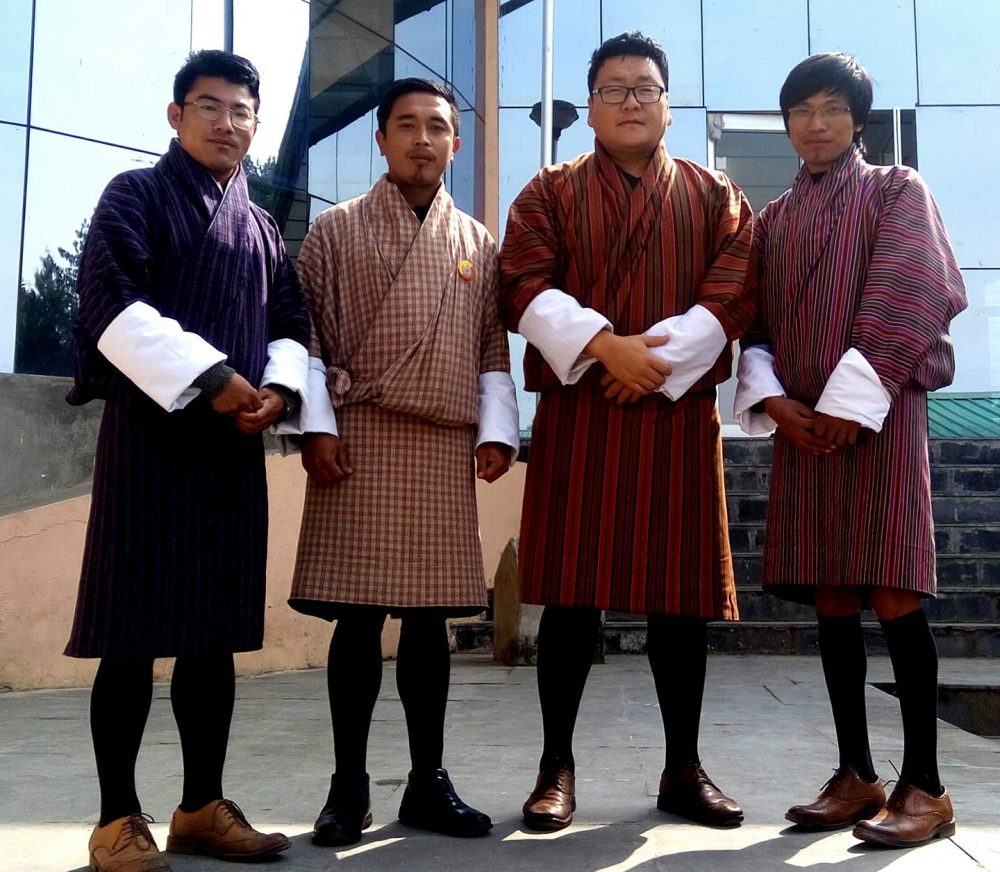 Beyond Sherubtse, I never say ‘No’ when I get to accompany supervisors because through informal conversations you get insights which does not necessarily happen in formal setting. Because we work within certain perimeters and predefined boundaries. Mr Paljor’s efforts in letting us carry out field visits and studies imparted in me interview and research skills. In doing so, I knew more about Kanglung. Today, I have questions to ask, literally, for everything. That said, I am yet to get the art of questioning right. One of my first questions to him was, ‘What is 3D?’, the term he used during his class on ‘Early Social Formations’.
Beyond Sherubtse, I never say ‘No’ when I get to accompany supervisors because through informal conversations you get insights which does not necessarily happen in formal setting. Because we work within certain perimeters and predefined boundaries. Mr Paljor’s efforts in letting us carry out field visits and studies imparted in me interview and research skills. In doing so, I knew more about Kanglung. Today, I have questions to ask, literally, for everything. That said, I am yet to get the art of questioning right. One of my first questions to him was, ‘What is 3D?’, the term he used during his class on ‘Early Social Formations’.
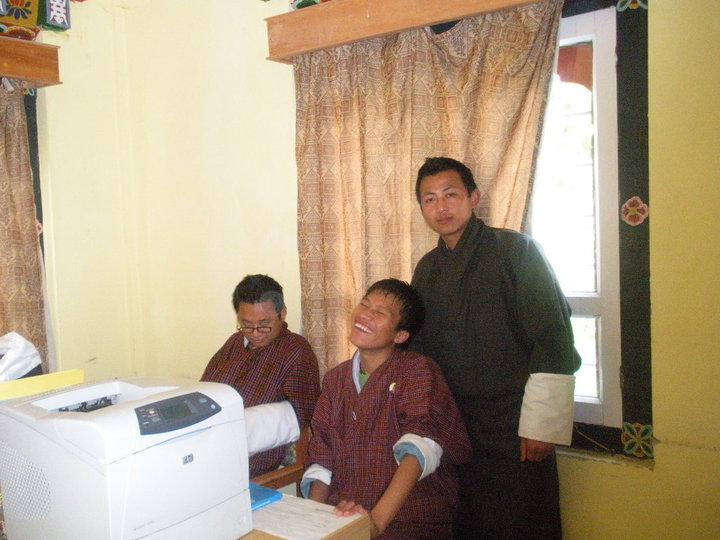 Given my rural upbringing and familial economic background, I used computer for the first time at Sherubtse. The question on ‘3D’ makes sense? My friend Mr Dorji helped me open an email account and Mr Passang introduced me to the world of Facebook. With limited exposure and access, I have had the privilege of given access to lecturer’s office and their computers. In a way, we were used to playing scrabble in lecturer’s room. That helped improve vocabulary. In that sense, Mr Tashi Chophel and Mr Tashi Jamtsho were very accommodative. Perhaps I was never groomed to survive long in bureaucratic setup? They also encouraged me to apply for Erasmus Mundus Exchange Programme which would give me much needed exposure. Dr. Pranav’s advice to follow current affairs, advice to learn three new words every day and his role in early days of STARS have helped me grow.
Given my rural upbringing and familial economic background, I used computer for the first time at Sherubtse. The question on ‘3D’ makes sense? My friend Mr Dorji helped me open an email account and Mr Passang introduced me to the world of Facebook. With limited exposure and access, I have had the privilege of given access to lecturer’s office and their computers. In a way, we were used to playing scrabble in lecturer’s room. That helped improve vocabulary. In that sense, Mr Tashi Chophel and Mr Tashi Jamtsho were very accommodative. Perhaps I was never groomed to survive long in bureaucratic setup? They also encouraged me to apply for Erasmus Mundus Exchange Programme which would give me much needed exposure. Dr. Pranav’s advice to follow current affairs, advice to learn three new words every day and his role in early days of STARS have helped me grow.
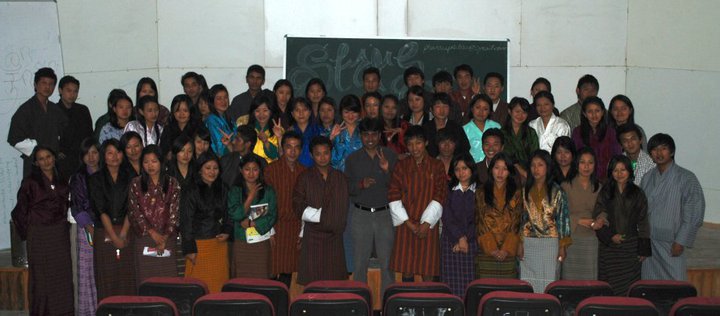
Sherubtse turns out to be the set of this story. How I made it there? In early 2000s, as Drametse’s diesel run generator light were put out by 21:00, on the other side of the valley, we would see Sherubtse lit all nights. My cousin and guardian, Mr Jambay referring to the lights of Sherubtse, would tell me, ‘You will get there…’ His comment was more based on my retention capacity [may be a bit of comprehension power] of whatever I have learnt in the class. Back then, I never worked as hard as general students would do. I am never a midnight owl. I even got punished a couple of times for not being able to get up early in the morning. But history took me to Sherubtse.
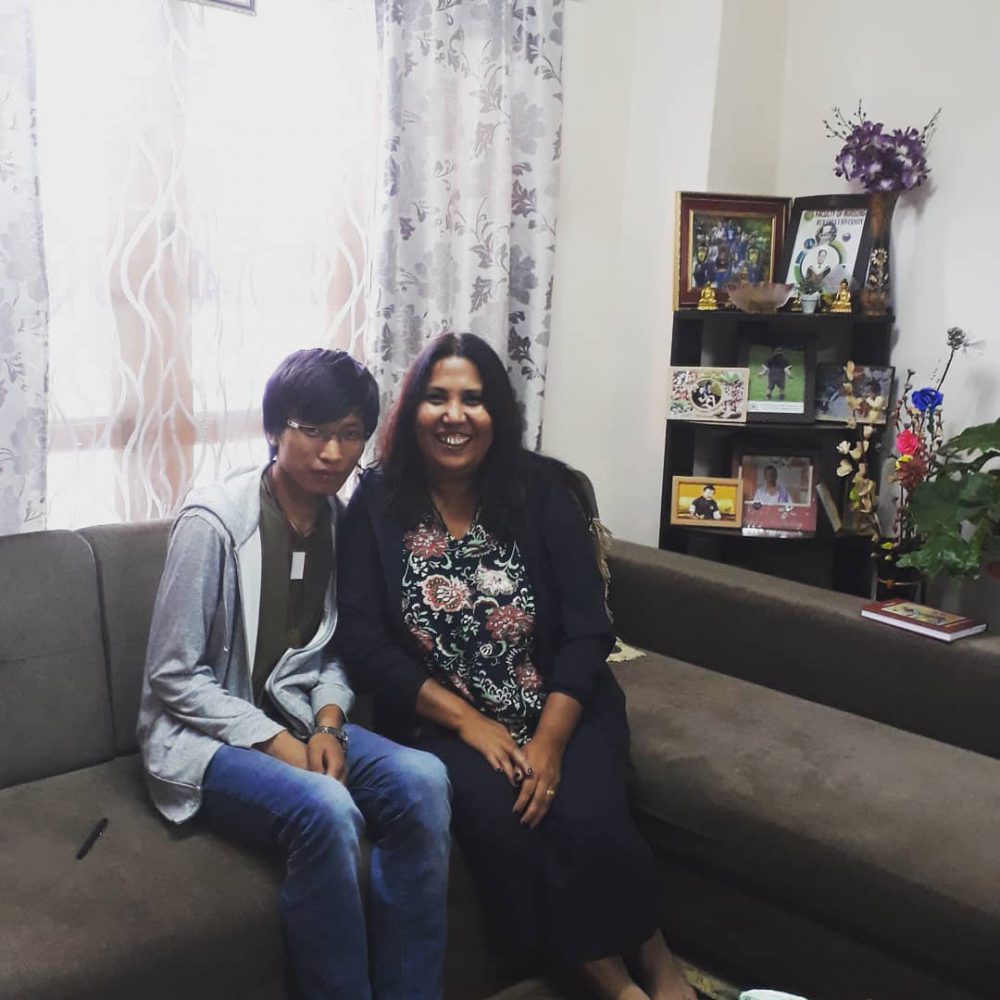 In 2006, as I decided to drop science for arts at Gyalpozhing, I was met with series of questions. Madam Sonam stood by my side. Through her teaching, I got the first taste of critical assessment when she would tell us, ‘as much as Hitler’s aggression, Anglo-French appeasement policy is also responsible for the outbreak of the calamitous second World War.’ In early 2009, I made a call to her that I scored 92 in history in my Bhutan Higher Secondary Education Certificate Examination (BHSCE). ‘I am aware of it’, she responded. My results took me to Lingkana Palace, the first travel outside my home Dzongkhag (district), Mongar.
In 2006, as I decided to drop science for arts at Gyalpozhing, I was met with series of questions. Madam Sonam stood by my side. Through her teaching, I got the first taste of critical assessment when she would tell us, ‘as much as Hitler’s aggression, Anglo-French appeasement policy is also responsible for the outbreak of the calamitous second World War.’ In early 2009, I made a call to her that I scored 92 in history in my Bhutan Higher Secondary Education Certificate Examination (BHSCE). ‘I am aware of it’, she responded. My results took me to Lingkana Palace, the first travel outside my home Dzongkhag (district), Mongar.
Today, my teachers are some of the closest people in my social circle. Whatever questions I have, they would find time to respond. I have also had the privilege in receiving gifts [books] and financial support from them. In them being responsive to my queries, I make an effort to be responsive to all my contacts [calls, messages in all channels] – a minimal courtesy to the efforts the other person have put in.
As I was preparing to depart for London, my maternal uncle told, “…is only the position you aren’t eligible…Rest, it is within your grasp. I want to see you succeed” [Journal entry dated 19 September 2020]. What my uncle sees in me and what I see before me may not necessarily converge [I have been a respectful son but not obedient enough in career choice]. The fact stands that my journey has enabled my kin to dream and imagine the world beyond Bhutan and the Himalayas otherwise whose reference points are India and Tibet. And this was made possible because I have crossed path with teachers such as you all. This anecdote conveys a couple of messages. Through education in which teachers play instrumental role, teachers not only equip and empower their pupils but also give hope in latter’s kith and kin.
To all my teachers, including those whose names aren’t reflected here, I reproduce my Facebook post from 01 May 2014:
“…In the process, I reached Nalanda to listen to teachings of Shantideva, sailed with Christopher Columbus and Vasco Da Gama, explored with Copernicus and Galileo and walked with Mahatma Gandhi and Sojourner Truth. Through these, I got to see the wider horizon of the cosmos, compounded with differing physic, interests, faith and attributes…”
And to my teachers, I might appear unreasonably blunt and straightforward at times, deep inside, I will be your student, always. As I enclose my note here, I think I speak to the feelings of gratitude students have for their teachers.
A very Happy Teachers Day!
PS: I deliberately omitted the use of title ‘Sir’ to avoid repetition. I also found it disrupting the flow as I read it. Picture courtesies are left out for space and formatting [layout] reasons.

